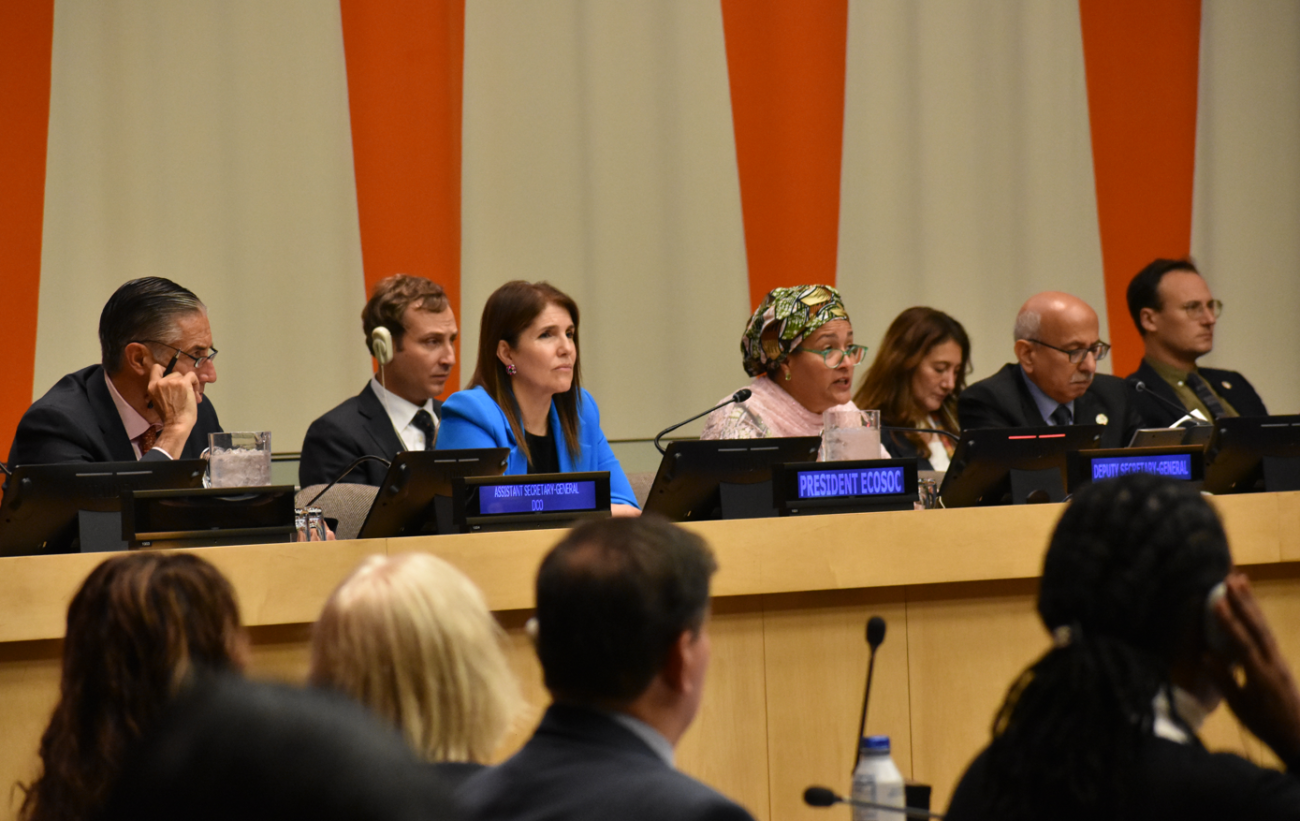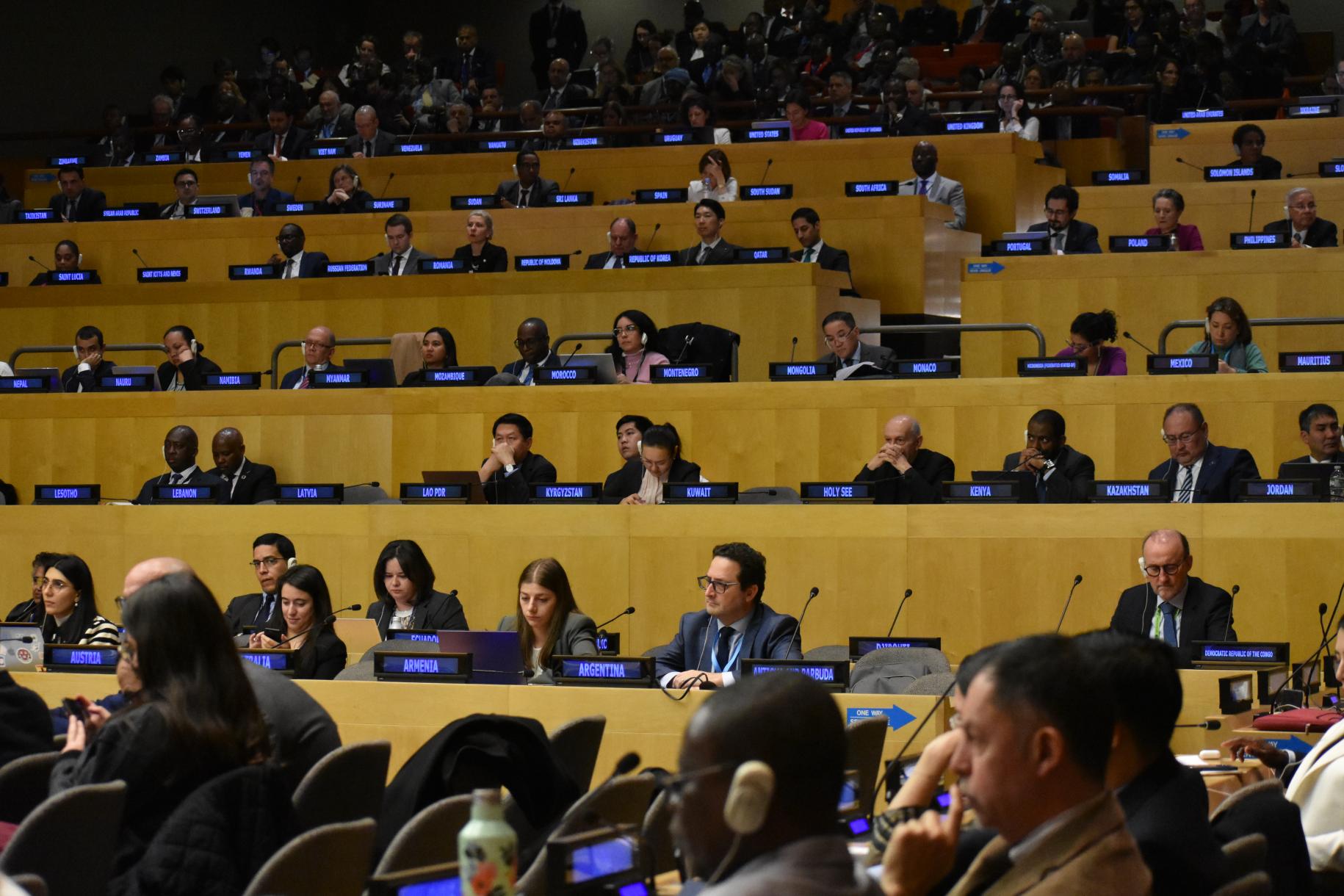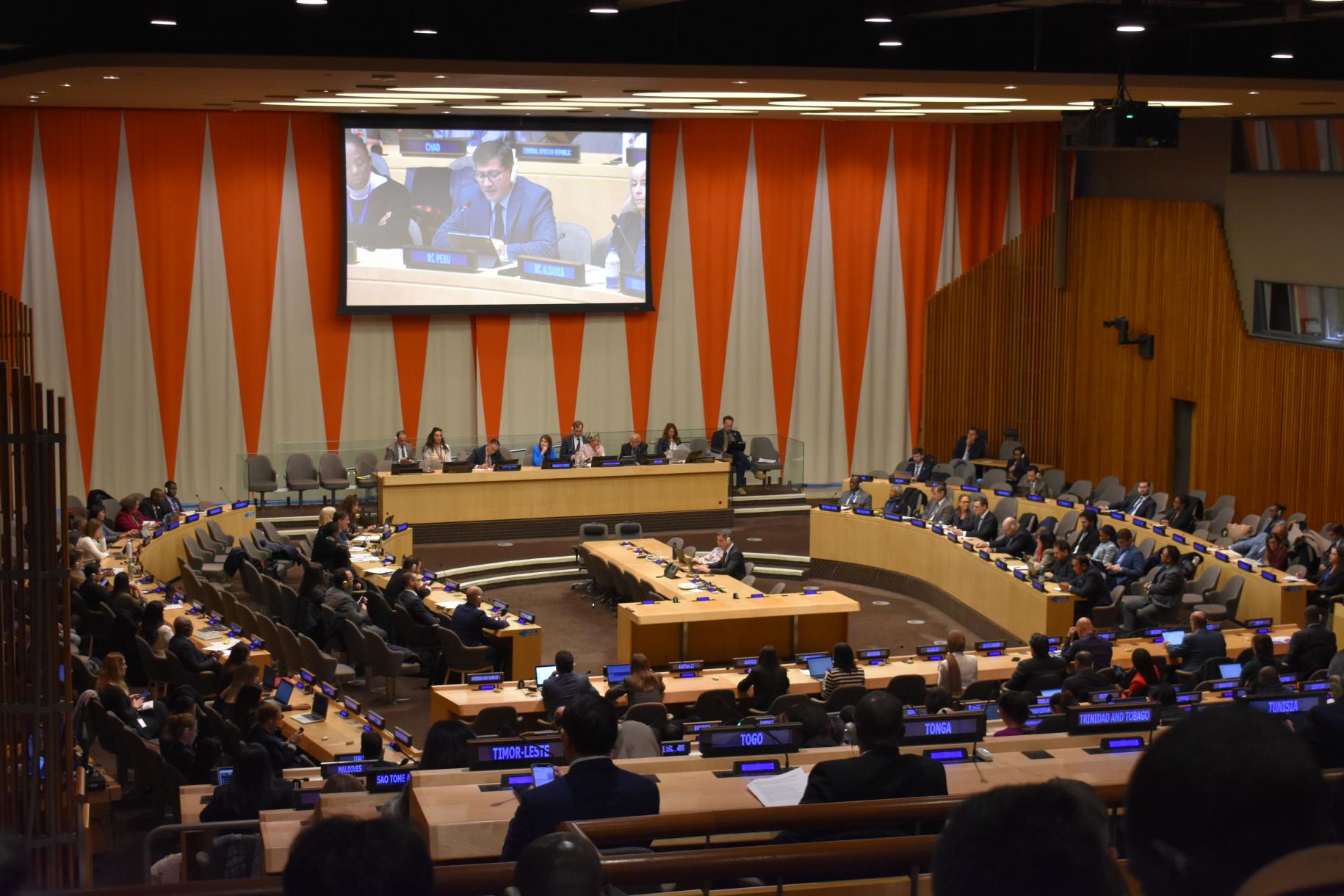UN Member States back strong investments for the Resident Coordinator system post SDG Summit

New York, 21 November - Resident Coordinators (RCs) from around the world came together last week to meet with the Secretary-General and discuss challenges and opportunities they face in delivering the UN development system’s mandate as countries accelerate efforts following the 2023 Sustainable Development Goals (SDGs) Summit.
Member States’ Ambassadors engaged directly with Resident Coordinators and exchanged ideas on how to urgently advance the SDGs in a moment of complex global crises.
Member States called on continuous investments for the UN’s work on sustainable development, including the pivotal role of Resident Coordinators and their offices, to make the most of the UN’s offer at global, regional and country levels.
Speaking at the outset, UN Deputy Secretary-General Amina Mohammed reminded Member States of the urgency to scale up action for the SDGs. “Resident Coordinators are helping countries embrace the need for an integrated approach for the SDGs, putting together the financing frameworks required for this, and strengthening capacities and institutions at the national and local level.”
What we heard from Member States’ representatives and Resident Coordinators:
Aligning the SDGs to national priorities
The Permanent Representative of the Kingdom of Lesotho, H.E. Ms. Kelebone Maope commended the work of the Resident Coordinator system in aligning the SDGs with national priorities. “We no longer see competing efforts [by UN entities], but rather complementing efforts. We must maintain the momentum of the work of the RCs’ offices.”
Referring to the Resident Coordinator Offices’ role in supporting countries assume leadership on global issues, the Resident Coordinator in Tajikistan, Parvathy Kavilmadam Ramaswami said, “Tajikistan has taken a leadership role in the global water agenda, most recently with co-hosting [among other countries] the UN 2023 Water Conference.” The RCO has provided technical expertise in setting the national water agenda, also fostering collaboration with other RCs in the region.

Forging partnerships amid increasing crises
The Permanent Representative of Haiti H.E. Mr. Antonio Rodrigue recognized the RC’s support in leveraging partnerships to address the multiple challenges of armed violence, economic disarray, and a protracted humanitarian crisis. The Ambassador also emphasized the important role the RC Office played in the creation of a trade and development programme designed to engage more private sector partners and boost the local economy.
The Resident Coordinator in Yemen, David Gressly outlined his teams’ efforts to "develop an economic framework which is oriented towards food security and is helping facilitate a rebound of the economy". Mr. Gressly has also created a Development Partner Group, including the World Bank to convene stakeholders from both inside and outside the country to support Yemen on its path towards resilience and recovery.
Earlier this year, in Peru, when Cyclone Yaku devastated the lives of nearly 250,000 people, Resident Coordinator Igor Garafulic and the UN country team jumped into action upon request of the Government. “Together, we activated our emergency protocols and focused our work on key areas such as shelter; food; sanitation and hygiene; social protection; disease prevention, and education. In fact, the Government of Peru is now looking to us again to help them prepare for the El Niño phenomenon, which will severely affect our entire region. The interest and commitment to do things together, maximizing what we can do with the least number of resources is a clear result of the Reform.”
Leveraging synergies
Several Member State representatives noted that since the launch of the UN development system reform five years ago, concerted efforts have been made to increase efficiencies and promote cost-saving operations in country offices on the ground.
In Viet Nam, Resident Coordinator Pauline Tamesis is pioneering this efficiency agenda through common UN premises. She pointed to the Green UN house which hosts 15 UN agencies under one roof and is helping boost coherence, reduce duplications, and generate cost savings.
In Tunisia, the Reform has resulted in a significant scaling up of joint UN programming, Resident Coordinator Arnaud Peral stressed, adding that 30 per cent of the whole UN country budget is now dedicated to joint UN programmes. He noted the important role his Resident Coordinator’s Office plays in making this inter-agency collaboration possible: ‘the five key functions in the Resident Coordinator’s office are a minimum, without them we lose opportunities and add delays in support our colleagues.” These five functions include a strategic planner and team leader, an economist, communications, partnership and data management officers.

Serving those who serve the world
Many Member States called for urgent, adequate, sustained, and predictable funding for the Resident Coordinator System’s continued impact.
“The RC system has boosted coherence and collective action, but we need to make efforts for predictable and sustained funding of the system,” said the delegate of the Netherlands, Ms. Katja Lasseur.
The Permanent Representative from Cameroon, H.E Mr. Michel Tommo Monthé, called on Member States to provide RCs with the means to keep serving the world. “While the Secretary-General has made various proposals related to the funding, the RC system needs a predictable and solid base; it needs a regular budget.”
As the Deputy Secretary-General highlighted, with seven years to go for 2030, the world faces many headwinds. The Resident Coordinators stand at the forefront, to provide tailored integrated support countries’ ambitions and commitments to the SDGs, for all.
Learn more about how Resident Coordinators are supporting the six transitions to accelerate the SDGs here. To read the Deputy Secretary General's full remarks at the interactive dialogue between Member States and Resident Coordinators click here.













